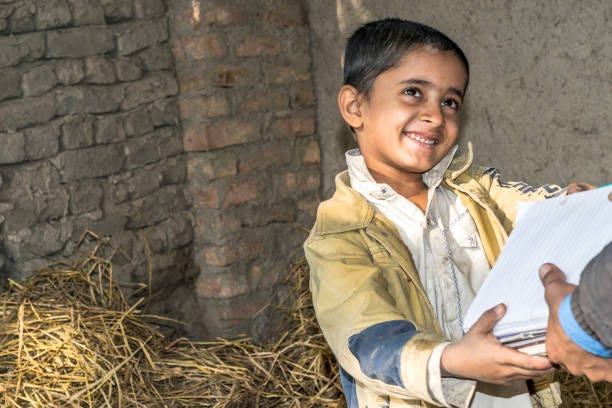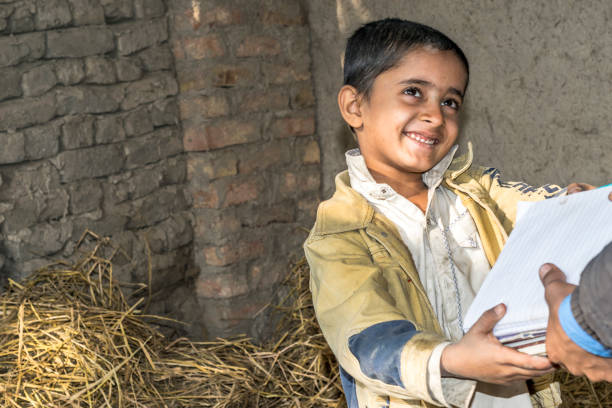In a world striving for progress and development, the role of Non-Governmental Organizations (NGOs) in India has become increasingly vital, especially in the realm of children’s education. These organizations stand as champions of change, guided by a set of principles that shape their actions and objectives. In this comprehensive exploration, we’ll delve into the core objectives of Noida NGOs in children’s education, while also emphasizing the critical role they play in nurturing India’s most valuable asset — its children.

The Guiding Principles of NGOs
1.Commitment to Social Welfare: At the heart of every NGO’s mission is an unwavering commitment to the welfare of society. This commitment extends to the most vulnerable and impressionable — children. NGOs strive to provide them with a better future through education.
2. Equity and Inclusivity: Ensuring that every child, regardless of their background or circumstances, has equal access to quality education is a fundamental principle. NGOs aim to erase disparities in education based on caste, creed, gender, or socio-economic status.
3. Transparency and Accountability: Transparency in their operations is a non-negotiable principle. NGOs maintain clear financial records and ethical fundraising practices. This transparency fosters trust and credibility among donors and beneficiaries.
4. Community-Centric Approach: Children’s education is most effective when it resonates with the unique needs and aspirations of the local community. NGOs actively engage local communities in decision-making, ensuring the relevance of educational initiatives.
5. Independence: NGOs maintain independence from political or commercial influences, allowing them to address issues objectively and impartially, thereby ensuring that children’s education remains a priority.
6. Human Rights and Dignity: Protecting and promoting the rights and dignity of children is a cornerstone principle. NGOs stand as guardians against any form of child rights violation.
7. Sustainable Development: The vision for children’s education extends beyond immediate concerns. NGOs promote sustainable development in education, equipping children with the skills they need to become self-reliant, responsible citizens.
8. Empowerment and Capacity Building: Empowering children through education is a primary objective. NGOs offer programs that equip children with not just knowledge but also essential life skills.
9. Collaboration and Partnerships: Collaboration is a key to expanding the reach of children’s education. NGOs actively seek partnerships with government agencies, other NGOs, and the private sector to pool resources and expertise.
10. Advocacy for Policy Change: NGOs don’t confine their efforts to the grassroots. They actively engage in advocating for policy changes that can significantly impact children’s education at a broader level, shaping the future.
Objectives of NGOs in Children’s Education
1.Universal Access to Quality Education: The primary objective of NGOs in children’s education is to ensure that every child, regardless of their socio-economic background or geographic location, has access to quality education. This involves building schools, providing scholarships, and improving existing educational facilities.
2. Eradicating Illiteracy: NGOs work relentlessly to eliminate illiteracy by implementing programs and initiatives that target both children and adults. They understand that a literate community is a stronger, more empowered one.
3. Promoting Inclusive Education: Inclusivity is a core principle. NGOs strive to create an inclusive educational environment where children with disabilities or from marginalized communities receive the support they need to thrive academically and socially.
4. Skill Development: Beyond traditional education, NGOs focus on skill development. They aim to equip children with practical skills that make them employable and self-sufficient. Vocational training is a significant part of this effort.
5. Nutrition and Health: NGOs recognize that a healthy child is better equipped to learn. They often integrate nutrition and healthcare programs into their education initiatives, ensuring children receive proper nourishment and healthcare.
6. Child Rights and Protection: Ensuring children’s rights are protected is a crucial objective. NGOs work to prevent child labor, child trafficking, and all forms of exploitation. They also create safe spaces for children in need of protection.
7. Promoting Gender Equality: Promoting gender equality in education is a critical objective. NGOs strive to ensure that girls have equal access to education and are not subjected to gender-based discrimination.
8. Digital Literacy: In the digital age, digital literacy is essential. Many NGOs introduce children to information technology, ensuring they are prepared for a technology-driven future.
9. Cultivating Life Skills: Education goes beyond academics. NGOs aim to nurture life skills like problem-solving, critical thinking, and communication, which are essential for a child’s holistic development.
10. Community Involvement: An objective that sets NGOs apart is community involvement. They actively engage parents, local leaders, and the broader community in children’s education, fostering a sense of ownership and responsibility for the children’s future.
Conclusion
The objectives of NGOs in children’s education are multifaceted and reflect a deep commitment to ensuring that every child in India has the opportunity to learn, grow, and succeed. The role of these organizations is not limited to classrooms but extends to transforming the future of the nation. By embracing their guiding principles and pursuing these objectives, NGOs in India continue to shape a brighter, more equitable future for children, which, in turn, fosters the progress and development of the nation as a whole.





Comments